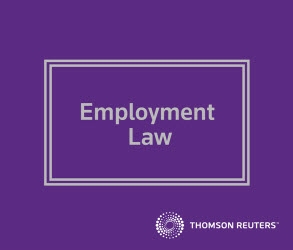Employment law — New Year amendments re migrant and other workers
2023 Act generally
The Worker Protection (Migrant and Other Employees) Bill 2022 (174-1) (explanatory note) provided in its introduction:
“This is an omnibus Bill … (dealing with an interrelated topic that can be regarded as implementing a single broad policy).
“The single broad policy and purpose of this Bill is to improve compliance and enforcement legislation to deter employers from exploiting migrant workers. The aim is to deter employer non-compliance with immigration and employment law. The related offence and penalty regimes are amended to ensure mirror enforcement regimes for work by both migrants and non-migrants.
“This Bill provides a more proportionate and efficient enforcement toolkit for immigration officers and Labour Inspectors to deal with lower-level offending before it becomes more serious. The Bill aligns the powers of the Labour Inspectorate and Immigration New Zealand and supports greater collaboration between the 2 regulators to undertake compliance and enforcement activity.
“To achieve that purpose, this Bill—
- amends the Immigration Act 2009 to empower immigration officers to request documents to verify that employers of migrant workers are complying with their obligations:
- allows Labour Inspectors and immigration officers to issue an infringement notice when employers fail to provide requested information within a reasonable time frame:
- establishes new infringement offences under the Immigration Act 2009 and the Employment Relations Act 2000:
- amends the Immigration Act 2009 so that the chief executive of the Ministry of Business, Innovation, and Employment can publish the names of employers convicted of immigration offences or issued with infringement notices (and details about the offending):
- amends the Companies Act 1993 so that a person convicted of migrant exploitation and people-trafficking offences cannot be a director or manager of a company if the offending was enabled or otherwise related to the use of a company.
“This Bill implements the legislative changes the Government announced as a result of the Temporary Migrant Worker Exploitation Review in 2020.”
Only a handful of changes were made to the Bill as it went through Parliament (none of which concerned the proposed amendments to the Employment Relations Act).
For further general information, see:
- MBIE “Further protection for migrant workers” (30 June 2023) <www.mbie.govt.nz>.
- Employment New Zealand “New requirements for employers under the Worker Protection Act” (21 December 2023) <www.employment.govt.nz>.
- Immigration New Zealand “Immigration changes resulting from the Worker Protection (Migrant and Other Employees) Act” (21 December 2023) <www.immigration.govt.nz>.
Employment Relations Act amendments
Twelve sections of the Employment Relations Act 2000 were amended on 6 January 2024.
Section 229 (Powers of Labour Inspectors) was amended so as to (in the words of the Bill’s explanatory note):
“… align it with new section 275A of the Immigration Act … In particular, the amendments provide a time frame of 10 working days within which an employer must comply with a requirement to produce or supply employment-related documents.”
Section 233A (Obligation of Labour Inspector and department not to disclose information) was amended so as to (per the explanatory note):
“… ensure it mirrors new section 294AAA of the Immigration Act. The amendment will permit disclosure of information obtained under section 229 or 229A of the Employment Relations Act for the purposes of the Immigration Act.”
The following interrelated amendments were also made:
- Section 235A (Interpretation) was amended.
- Section 235B (Infringement offences) was amended.
- Section 235C (Infringement notices) was replaced with a new s 235C (When infringement notice may be issued).
- Section 235D (Procedural requirements for infringement notices) was replaced with a new s 235D (Revocation of infringement notice before payment made).
- A new s 235DA (What infringement notice must contain) was inserted.
- A new s 235DB (How infringement notice may be served) was inserted.
- A new s 235DC (Reminder notices) was inserted.
- Section 235E (Infringement fees) was replaced with a new s 235E of the same name.
- A new s 235EA (Infringement fine) was inserted.
As described in the Bill’s explanatory note, the amendments listed above:
“… provide for a new infringement offence similar to 1 of the new infringement offences created in the Immigration Act … This would penalise any failure by an employer to comply with a requirement to supply a document within the 10-working-day period specified by the amended section 229.
“Other amendments are made to the infringement offence regime to update the drafting.”
Finally, sch 1AA (Application, savings, and transitional provisions relating to amendments made to this Act after 1 January 2013) was amended by the addition of a new cl 19 (Transitional provision relating to section 229 of this Act):
“Section 229 (as amended by the Worker Protection (Migrant and Other Employees) Act 2023) applies to documents and employment information created before or after that amendment.”
As usual, these amendments (along with other recent updating) are noted at Employment Law — What’s New in Employment Law (online ed, Thomson Reuters) on Westlaw New Zealand.
